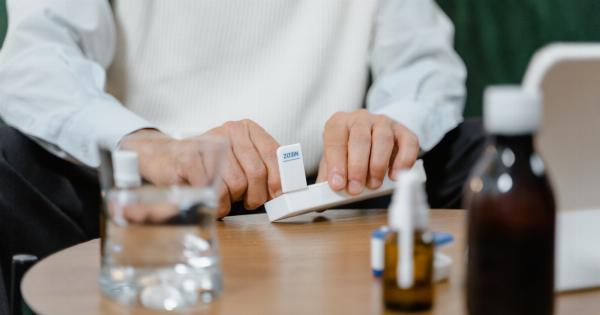Eczema, also known as atopic dermatitis, is a skin condition that affects approximately 31.6 million people in the United States alone. It can occur at any age and is characterized by itching, redness, and inflammation of the skin.
Eczema is a chronic condition, meaning that it persists over time and requires ongoing management. This article will explore the causes, symptoms, and treatment options for eczema.
What Causes Eczema?
The exact cause of eczema is not well understood. It is believed to be a combination of genetic and environmental factors. People with a family history of eczema, allergies, or asthma are more likely to develop the condition.
Environmental triggers can also play a role, such as exposure to irritants or allergens, changes in temperature or humidity, stress, and certain foods.
Symptoms of Eczema
The symptoms of eczema can vary from person to person. Common signs and symptoms include:.
- Itching
- Redness
- Inflammation
- Dry, scaly, or thickened skin
- Blisters or oozing lesions in severe cases
Treatment for Eczema
While there is no cure for eczema, there are several treatment options available to manage the symptoms. These include:.
Topical Medications
Topical medications, such as corticosteroids, calcineurin inhibitors, and phosphodiesterase-4 inhibitors, can be used to reduce inflammation and itching. These medications can be applied directly to the affected areas of the skin.
Moisturizers
Moisturizers can help to soothe and hydrate dry, itchy skin. They can be used several times a day, especially after bathing or showering. Look for moisturizers that are fragrance-free and contain ingredients such as ceramides, hyaluronic acid, or urea.
Bathing and Skincare
Proper bathing and skincare can also help to manage eczema. Here are some tips:.
- Avoid hot water and use warm instead
- Limit time in the bath or shower
- Use mild, fragrance-free soap
- Pat skin dry with a soft towel
- Avoid rubbing or scratching
Light Therapy
Light therapy, also known as phototherapy, involves exposing the skin to ultraviolet light. This treatment can help to reduce inflammation and itching. Light therapy should only be used under the guidance of a healthcare provider.
Oral Medications
In severe cases of eczema, oral medications such as antihistamines, antibiotics, or immunosuppressive agents may be prescribed by a healthcare provider. These medications can have side effects and should only be used under close supervision.
Preventing Eczema Flares
In addition to treatment, there are steps you can take to prevent eczema flares:.
- Avoid triggers such as harsh soaps, detergents, or fragrances
- Wear gloves when handling irritants such as cleaning products or chemicals
- Avoid extreme temperatures or humidity
- Manage stress through relaxation techniques or counseling
- Avoid scratching or rubbing the affected areas of skin
The Bottom Line
Eczema is a chronic skin condition that can be uncomfortable and frustrating. While there is no cure, there are several treatment options available to manage the symptoms. Work with your healthcare provider to develop a treatment plan that works for you.






























